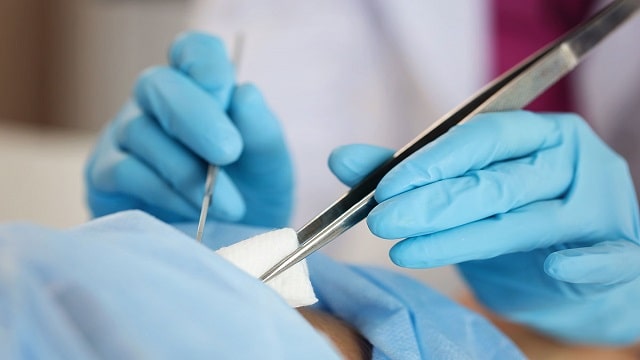Minor Surgery
Minor surgery is any invasive surgical procedure in which only the skin or mucous membranes and connective tissue are resected. For example, vascular cutting for catheter placement, or the placement of a pump in the subcutaneous tissue.
Procedures in which the surgical field is not effectively disinfected, such as tooth extractions and gingival grafts, would generally be considered minor surgery. This category also includes biopsies, and invasive surgical procedures to obtain samples of tissue or body fluids using a needle or trocar.
Benefits of Minor Surgery
Minor surgery is useful to help doctors determine the diagnosis of the disease experienced by the patient. In addition, this procedure can also help overcome some conditions and prevent further severity that can occur.
When Should Minor Surgery Be Performed?
When minor surgery is needed usually depends on the doctor’s decision. During a health check, the doctor will assess whether minor surgery is needed.
From a medical perspective, doctors will usually consider minor surgery whenever possible, to treat the disease, rather than major surgery (major surgery). This is because minor surgery has a lower risk of complications related to surgery, and patients can recover faster.
Minor Surgical Procedures
Minor surgical procedures typically include any procedure that can be safely performed in an outpatient setting. That is, without the use of general anesthesia or the need for assisted breathing. The anesthesia given is usually a local anesthetic, which is given by injection or topical cream.
While the type of procedure varies based on the location that needs surgery, some of the more common minor surgical procedures include:
- Removing foreign objects from wounds, ears, eyes, nose, or vagina.
- Stitching and/or suture removal for wounds and lacerations.
- Incision and drainage.
Most minor surgical procedures are completed within a few minutes. The length of time required depends on the type of procedure performed.
However, the average is only about 15 to 30 minutes for most, or up to an hour for more complicated procedures. This can be asked directly to the doctor.
Purpose of Minor Surgery
Minor surgery can be used for several different applications. Minor surgery does not involve highly invasive techniques, such as appendectomy, but can provide a precursor to such more advanced procedures.
The most common reasons for undergoing minor surgery include:
1. Identifying Diseases
Minor surgery can help identify the presence or even cause of disease. This procedure can be used to determine problems in the abdomen and can be used to decide whether or not to remove the gallbladder.
A biopsy is also considered minor surgery and can help doctors identify the root cause of various symptoms and diseases.
2. Treating Wounds and Damage
Minor surgery can also be used to treat wounds and injuries. If there is a skin lesion, for example, debridement is a minor surgical procedure used to treat and close the area.
Stitches are also considered a minor surgical procedure and effectively close wounds that would be in danger of infection, decay, or further opening.
Places to Perform Minor Surgery
Minor surgical procedures can be performed in hospitals, laboratories, clinics, or other health care centers that have adequate equipment. Preparation and disinfection of the surgical site includes cutting hair and surgical scrubbing of the skin, covering the surgical site with sterile drapes. All will be performed by experienced surgeons and assistants working in the surgical field.

